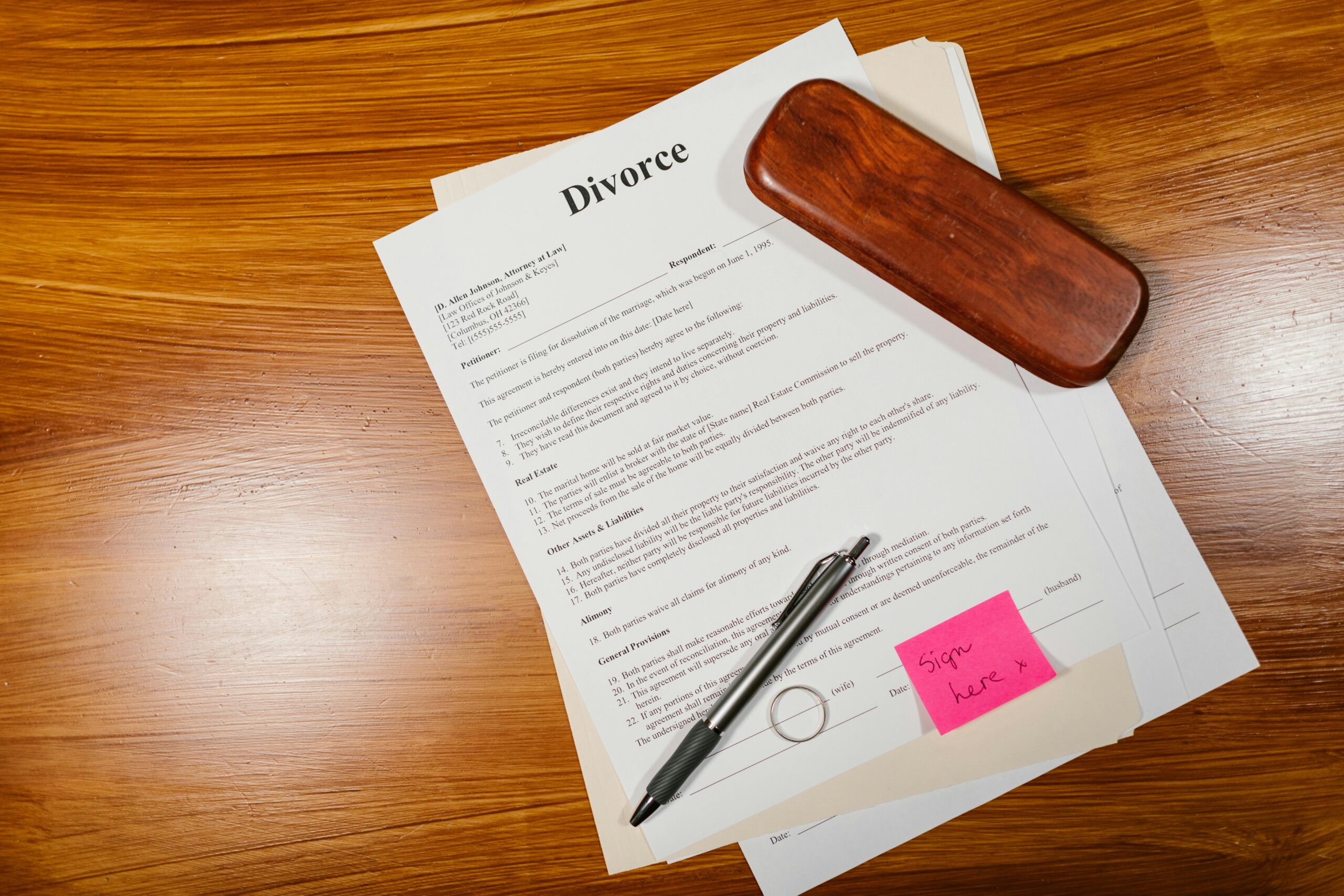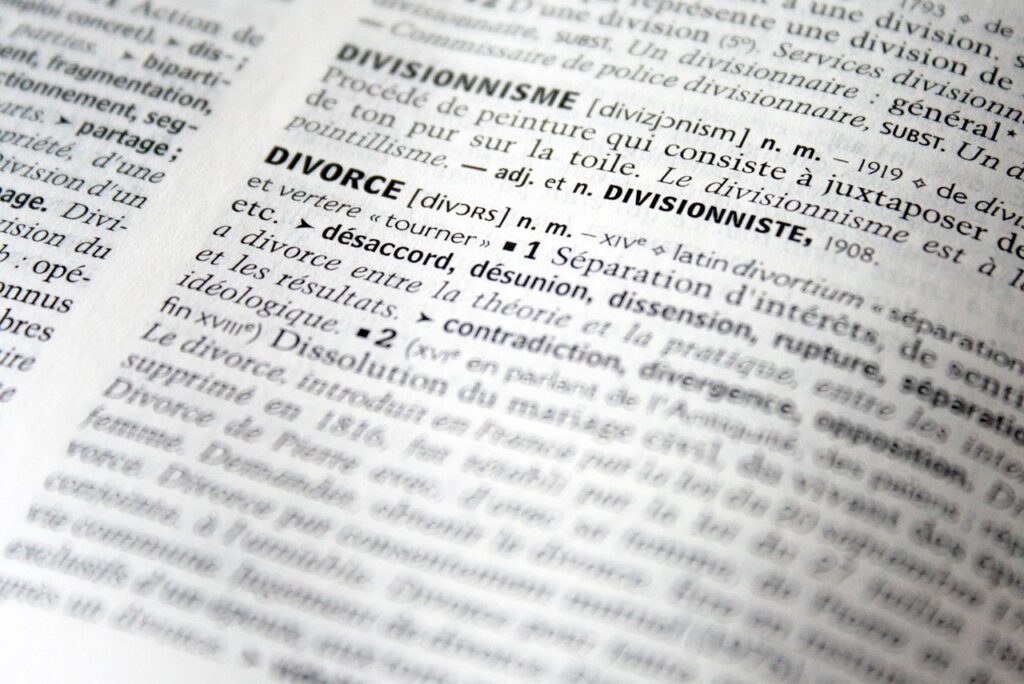If you’re a business owner contemplating divorce, you’re facing one of the most complex and high-stakes situations in family law. Your business, often your most valuable asset and the culmination of years of hard work, could be significantly impacted by divorce proceedings. This comprehensive guide explains how divorce affects business owners in England and Wales, what you need to know about protecting your company, and how to navigate this challenging process whilst safeguarding both your livelihood and your financial future.
Understanding how divorce impacts business assets is crucial for directors, partners, and entrepreneurs with significant equity. In England and Wales, businesses established or grown during marriage are typically considered matrimonial assets, meaning they may be divided during divorce proceedings. Courts prefer to leave the business owner with the business whilst compensating the other spouse with a larger share of other assets or maintenance payments. However, achieving this outcome requires strategic planning, comprehensive financial disclosure, and expert legal guidance from specialist family law solicitors who understand the unique challenges business owners face during divorce.
Why Your Business Is at Risk in Divorce

Many business owners mistakenly assume that because a company is registered in their name or operated as a limited liability company, it will be automatically protected during divorce. Unfortunately, this assumption is fundamentally incorrect under English and Welsh law.
Businesses as Matrimonial Assets
Under the Matrimonial Causes Act 1973, courts must consider all assets when determining a fair financial settlement. A business is generally treated as a matrimonial asset if it was established during the marriage or if its value increased significantly whilst you were married. This applies regardless of whether your spouse had any direct involvement in running the company.
The starting principle in English family law is that matrimonial assets should be divided equally between spouses, reflecting the contributions both parties made to the marriage. Courts recognise that whilst one spouse may have built the business, the other may have made equally valuable contributions by managing the household, raising children, or providing emotional and practical support that enabled the company to flourish.
The Reality for Different Business Structures
Your business structure influences how courts approach valuation and division, but it does not provide automatic protection. According to recent data from the Department for Business and Trade, there were 5.5 million private sector businesses in the UK in late 2024, the majority of which were small and medium-sized enterprises (SMEs). These businesses employ approximately 60% of the UK’s workforce and represent not just financial value but years of dedication, sacrifice, and personal identity.
Sole traders face particular vulnerability because business assets and personal assets are legally indistinguishable. The owner controls business assets but remains personally liable for business debts, meaning income and profitability become central considerations in divorce settlements.
Partnerships present additional complexity, especially when other partners beyond the divorcing couple hold stakes. Partnership agreements may include provisions restricting share transfers, and the involvement of third parties can complicate valuations and settlement negotiations.
Limited companies offer some structural separation because they exist as distinct legal entities. However, this does not exempt your shareholding from being valued and included in the matrimonial asset pool. Courts will assess the value of your shares and consider them alongside other assets when determining a fair settlement.
Understanding Business Valuation in Divorce

Accurate business valuation forms the foundation of any fair financial settlement involving business interests. The valuation process can be complex, costly, and contentious, but understanding the key methods and principles will help you navigate this critical stage.
Common Valuation Methods
Financial forensic experts employ various methodologies to determine what a hypothetical buyer would pay for your business. The appropriate method depends on your business type, structure, and assets.
Asset-based valuation calculates a business’s total value by subtracting its liabilities from its assets. This method suits businesses with significant tangible assets such as property, equipment, or stock, rather than service-based companies. For example, property investment businesses, manufacturing companies, or farming operations typically benefit from asset-based valuations.
Earnings-based valuation focuses on the business’s ability to generate future income. The most common approaches include the Discounted Cash Flow (DCF) method, which estimates and discounts future cash flows to present value, and the Capitalised Earnings method, which applies a multiple to current earnings. This approach suits professional practices, consultancies, and businesses where value derives primarily from ongoing operations rather than physical assets.
Market-based valuation compares your business to similar companies that have recently been sold. This method works best for businesses in well-established markets with readily available comparable sales data. Valuers may employ the guideline public company method or the merger-and-acquisition method to establish market value.
The Role of Expert Valuers
Courts typically appoint a single joint expert (SJE), usually a forensic accountant, to conduct business valuations. This expert is instructed jointly by both parties to ensure impartiality and reduce costs. The SJE analyses financial statements, management accounts, tax documents, asset registers, and recent trading performance to produce a comprehensive valuation report.
Business valuations can cost between £5,000 and £25,000 or more, depending on complexity. Before commissioning a valuation, you should carefully weigh these costs against the business’s value and consider whether a formal valuation is necessary in your circumstances.
Factors Affecting Business Value
Several factors influence how experts value your business. The nature of your business significantly impacts valuation approaches. A company that simply serves as a vehicle for your professional work, such as a consulting firm, may have little value beyond your earning potential. In contrast, a company with diversified customer contracts, established brand value, and tangible assets possesses intrinsic value independent of any individual owner.
Business structure and operations require careful evaluation. Experts assess whether the business’s value is closely tied to your involvement, how easily it could be sold or transferred, and what role your spouse played in its development.
Complex financial structures present particular challenges. Businesses with director loans, intertwined personal and business finances, or multiple shareholdings require detailed analysis to ensure accurate valuation. If you’ve been drawing unsustainable income amounts from the company, this can skew perceived value and complicate negotiations.
External factors such as economic conditions, industry-specific challenges, and market trends must be considered. The business’s fortunes may have changed significantly since earlier profitable periods, and valuers must account for such variations when assessing sustainable earnings.
Matrimonial vs Non-Matrimonial Assets
A critical distinction in divorce proceedings is whether business value is considered matrimonial or non-matrimonial property. Marital assets are those acquired during the marriage and are typically subject to equal division. Non-matrimonial assets, such as businesses owned before marriage, inherited interests, or gifts, may be excluded from division if sufficient other assets exist to meet both parties’ needs.
The landmark case of Jones v Jones established essential principles for businesses built both before and during marriage. The Court of Appeal determined that pre-marital business value should be excluded from matrimonial assets, whilst value increases during the marriage were subject to division. This ruling emphasises the importance of distinguishing between pre-marital and marital business assets and evaluating each spouse’s contribution to business growth.
Even if your business predates your marriage, the increase in value during the marriage will likely be considered a matrimonial asset. Courts may apply various methodologies to calculate this marital accrual, including the accountancy method, linear method, or intuitive approach.
Post-Separation Accrual
Post-separation accrual refers to increases in business value after the separation date. This can be particularly contentious when business interests fluctuate significantly over relatively short periods. The court may consider factors such as each spouse’s contributions to business growth during separation, whether the growth was passive or the result of active endeavour, and the proportion of post-separation value attributable to each party.
In recent cases involving business valuations at separation versus sale, courts have shown a willingness to distinguish between passive market growth (which remains matrimonial) and active post-separation work that genuinely enhanced value beyond market conditions. This nuanced approach recognises that not all post-separation growth should be equally shared, particularly where one spouse has made exceptional efforts to grow the business after relationship breakdown.
Protecting Your Business Before and During Marriage

Proactive planning offers the most effective protection for business assets in the event of divorce. Whilst no strategy provides guarantees, several legal mechanisms can significantly reduce risk and provide clarity about how business interests will be treated.
Pre-Nuptial Agreements
Pre-nuptial agreements (prenups) are among the most effective tools for protecting business interests before marriage. These agreements outline how assets, including business interests, will be divided in the event of divorce.
Whilst prenups are not automatically legally binding in England and Wales, courts increasingly give them substantial weight, provided they meet specific criteria. The landmark case of Radmacher v Granatino significantly enhanced the status of prenuptial agreements, with the Supreme Court ruling that courts should uphold prenups where it is fair to do so.
For a prenuptial agreement to carry maximum weight with courts, it must meet several requirements. Both parties must enter the agreement freely, without duress or undue pressure. Each party must receive independent legal advice from separate solicitors who can explain the agreement’s implications. Full financial disclosure must be provided by both parties, ensuring each person understands what they’re agreeing to. The terms must be fair and reasonable both when executed and when potentially enforced years later. The agreement should be executed at least 28 days before the marriage ceremony to demonstrate it was not a last-minute decision.
Pre-nuptial agreements can include specific provisions to ring-fence business interests. They can specify that the business-specific business assets should remain with the original owner, establish a business valuation at the time of marriage to distinguish pre-marital value from marital growth, and stipulate that the non-owning spouse will not make claims on business assets, protecting shareholders or partners from being affected by your divorce.
For business owners with family enterprises, inherited farming assets, or succession planning concerns, prenups provide invaluable clarity and protection. They allow you to agree calmly in advance how assets would be shared, rather than negotiating when emotions run high during divorce proceedings.
Post-Nuptial Agreements
If you’re already married and didn’t execute a prenup, a post-nuptial agreement offers similar protection. These agreements are made during marriage and can be particularly valuable if your business circumstances change significantly, such as when you establish a new company, receive substantial investment, or your business value increases dramatically.
Like prenups, postnups are not legally binding, but courts will generally uphold them if they are fair and both parties received proper legal advice. Post-nuptial agreements can address protection of business assets, financial arrangements for children from previous relationships, changes in circumstances since marriage, and succession planning for family businesses.
Shareholder and Partnership Agreements
If you own a business with other parties, shareholder agreements or partnership agreements should include provisions addressing what happens if one owner divorces. These agreements can specify restrictions on share transfers, require divorced shareholders to offer shares to remaining shareholders first, establish valuation methodologies in advance, and protect the business from claims by divorcing spouses.
Such provisions protect not only you but also your business partners, providing security that their interests won’t be adversely affected by your divorce. Clear documentation also facilitates smoother negotiations during divorce proceedings because the framework for handling business interests is already in place.
Maintaining Financial Boundaries
Keeping business and personal finances completely separate strengthens the argument that the business should be treated as your personal property. This means maintaining separate bank accounts for business and personal use, avoiding paying household expenses directly from business accounts, documenting all financial transactions meticulously, and ensuring any spousal involvement in the business is compensated correctly and recorded.
Clear financial boundaries and thorough documentation provide an audit trail demonstrating the business’s independence from marital finances. This evidence can prove invaluable during disclosure and settlement negotiations.
The Divorce Process: What Business Owners Need to Know

When divorce proceedings begin, business owners face unique challenges and obligations. Understanding the process and your responsibilities will help you navigate this difficult period whilst protecting your business interests.
Financial Disclosure Requirements
Full and frank financial disclosure is legally mandatory in divorce proceedings. You must disclose all business interests, regardless of whether you consider them protected. This disclosure typically occurs through Form E, a comprehensive financial statement that includes company accounts, management accounts, asset registers, loan and liability records, tax documents and returns, and business valuations if available.
Missing or unclear financial records can significantly slow the process and damage trust between parties. If the court suspects you’re hiding or undervaluing assets, it may draw adverse inferences against you, potentially resulting in a less favourable settlement.
Your spouse’s solicitor may request extensive business documentation to verify the information you’ve provided. Forensic accountants may be instructed to examine your company’s books, identify whether income is being artificially reduced, investigate whether assets have been transferred or concealed, and assess the actual value of the business.
Freezing Orders
If you have legitimate concerns that your spouse might attempt to devalue business assets or transfer them to prevent fair division, you can apply for a freezing order. This is a type of injunction that prevents your spouse from dealing with assets.
To obtain a freezing order, the court must be satisfied that there is a genuine risk your spouse will dispose of or devalue assets and that this action would prejudice your ability to obtain a fair share in the financial settlement. If you suspect such behaviour, acting quickly is essential. Preventative action through a freezing order is far preferable to attempting remedies after assets have already been transferred or depleted.
Settlement Structures and Options
Courts rarely order the sale of a functioning business, preferring solutions that preserve business operations whilst ensuring fair division of wealth. Several settlement structures may be appropriate depending on your circumstances.
Asset offsetting allows one spouse to retain full ownership of the business whilst the other receives assets of equivalent value. For example, if you keep your business valued at £500,000, your spouse might receive the family home, which is also worth a similar amount. This approach provides a clean financial break and avoids disrupting business operations.
Buyout arrangements involve one spouse purchasing the other’s interest in the business. Buyouts can be financed through cash payments, instalment plans, or trading off other marital assets of equivalent value, such as property, pensions, or investments. Professional appraisal is crucial to establishing fair market value and preventing future disputes.
Spousal maintenance is another option in which one spouse makes ongoing payments from the business’s income. This may be appropriate if the company has sustained the couple’s lifestyle throughout the marriage and ensures that, whilst the industry remains under one spouse’s control, its income continues to support both parties.
Staged payments can address liquidity concerns. Suppose your business lacks sufficient cash to fund an immediate lump sum settlement. In that case, the court may order payments over time, allowing the company to maintain working capital whilst gradually satisfying the settlement obligation.
Selling the business is generally considered a last resort. Courts may order a sale if both spouses are equally involved in the industry and cannot agree on alternative arrangements. No other assets exist to offset the business value. However, this outcome is rare and typically occurs only when all other options have been exhausted.
Impact on Business Operations
Divorce proceedings can significantly affect your business beyond the financial settlement. The stress and time demands of divorce inevitably distract from running your company. Some business owners feel less motivated to grow their business if they believe increased value will only benefit their ex-spouse.
Staff morale and productivity can suffer if employees sense instability. Clear, consistent communication with your team, without revealing inappropriate personal details, helps maintain confidence and stability during this uncertain period.
If the business employs your spouse, you may face employment law complications requiring specialist advice. Terminating a spouse’s employment during divorce proceedings carries significant legal and financial risks that must be carefully managed.
Continuing to Run the Business Post-Divorce
Some divorcing couples must continue operating their business together, particularly when the enterprise cannot easily be divided or sold. Whilst rare, this arrangement can work if both parties maintain mutual respect and share a vision for the business.
Several strategies can facilitate shared business management post-divorce. Consider appointing a neutral managing director to oversee daily operations, minimising the need for direct interaction. Divide responsibilities clearly, focusing on separate business areas to reduce day-to-day communication requirements. Establish formal communication protocols and adhere to them strictly, such as limiting business discussions to scheduled meetings or using third-party mediators for disputes. Formalise all agreements about ownership, management, and profit distribution in writing to prevent misunderstandings. Agree on exit strategies for either or both parties should continued cooperation become impossible, including provisions for business sale, buyouts, or phased exits.
However, experience shows that continuing to operate a business with your ex-partner is highly challenging for most couples. Unless you both possess enormous trust and respect for one another, this arrangement will likely prove difficult and may ultimately harm the business.
Tax Implications of Dividing Business Assets

The tax consequences of transferring or dividing business assets during divorce can be substantial and must be carefully considered when negotiating settlements.
Capital Gains Tax
Transferring shares or selling business assets can trigger Capital Gains Tax (CGT) liabilities. However, if business shares are transferred between spouses within the same tax year of separation (or before separation), this can be treated as an exempt transfer, avoiding immediate tax liability.
It’s crucial to understand that, even if the transfer is initially exempt, the asset may still be subject to CGT if sold in the future. The receiving spouse effectively inherits the original owner’s acquisition cost basis, meaning they will face CGT on the full gain when they eventually dispose of the asset.
Business Asset Disposal Relief
In certain circumstances, shareholders disposing of their shares can rely on Business Asset Disposal Relief (formerly Entrepreneurs’ Relief) to reduce CGT rates. This relief can result in a CGT rate of 10% rather than the standard higher rate, potentially saving significant sums on qualifying disposals.
However, strict conditions must be met to qualify for this relief, including minimum ownership periods and active involvement in the business. These requirements should be carefully assessed before structuring any business asset transfers.
Stamp Duty
Receiving shares as part of a divorce settlement may result in stamp duty charges, depending on the structure of the transfer. Proper tax planning can sometimes minimise or eliminate these charges, but this requires specialist advice.
Income Tax Considerations
If your settlement involves ongoing maintenance payments derived from business income, the income tax treatment of these payments must be considered. Spousal maintenance payments are typically made from post-tax income and are neither deductible for the payer nor taxable to the recipient.
Given the complexity and potential significance of tax implications, obtaining tailored advice from a qualified accountant or tax adviser is essential. Structuring transfers and settlements in tax-efficient ways can save substantial sums and avoid unexpected tax burdens that could significantly impact the fairness of the settlement.
What Courts Consider When Dividing Business Assets
Courts exercise broad discretion when dividing assets in divorce, guided by Section 25 of the Matrimonial Causes Act 1973. Understanding the factors courts consider helps you anticipate likely outcomes and negotiate effectively.
The Section 25 Factors
Courts must consider a comprehensive checklist of factors when determining fair financial settlements. The income and earning capacity of both parties, now and in the foreseeable future, influence how business income and potential are assessed. Financial needs, obligations, and responsibilities of both parties, now and in the foreseeable future, affect whether business assets must be accessed to meet essential needs.
The standard of living before the relationship breakdown provides context for assessing reasonable needs and expectations. The age of the parties and the duration of the marriage influence how assets are divided, with longer marriages typically resulting in a more equal division. Any mental or physical disability of either party affects needs and earning capacity assessments.
Contributions of both parties to the family’s welfare are considered, including non-financial donations such as homemaking and childcare. Courts specifically recognise that whilst one spouse built the business, the other may have made equally valuable contributions by supporting the family. The conduct of the parties is considered only in limited circumstances where behaviour is so extreme that it would be inequitable to disregard it.
Needs, Compensation, and Sharing
The landmark cases of Miller v Miller and McFarlane v McFarlane established three guiding principles that courts apply when dividing assets in high-net-worth divorces involving business interests. These principles require courts to meet both parties’ reasonable needs, compensate for any economic disparity arising from the marriage (such as one spouse sacrificing career development to support the family), and fairly share the assets accumulated during the marriage.
These principles ensure that courts consider not only existing business assets but also future earning capacity and the contributions made by both parties to acquiring and maintaining wealth.
The Interests of Children
First consideration must be given to the welfare of any children under 18. This principle significantly influences housing needs, income requirements, and the overall structure of financial settlements. If keeping the family home for the children’s benefit is prioritised, this may affect the amount of business value that can be accessed for division.
Practical Steps to Protect Your Business During Divorce

If you’re facing divorce as a business owner, taking immediate, strategic action can significantly protect your interests and improve your settlement outcome.
Engage Specialist Legal Advice Early
The sooner you seek advice from family law solicitors experienced in business asset cases, the more options you’ll have. Specialist solicitors understand the unique challenges business owners face and can develop strategies to protect your company whilst achieving a fair settlement.
Edwards Family Law is a boutique law firm specialising in complex divorce and family law matters for high-net-worth individuals. With significant experience representing business owners, directors, and entrepreneurs, the firm provides tailored, discreet advice designed to protect your business interests and secure your financial future. The team regularly handles cases involving business valuations, offshore assets, large property portfolios, and complex financial structures.
Explore Non-Court Dispute Resolution
Alternative dispute resolution methods such as mediation, collaborative law, or arbitration can help you reach agreements without the disruption, expense, and publicity of court proceedings. These approaches often yield more creative, business-friendly solutions because you retain control over the outcome rather than leaving decisions to a judge.
Mediation involves a neutral third party helping you and your spouse negotiate directly, potentially saving substantial legal costs whilst preserving business confidentiality. Collaborative law brings both parties and their solicitors together with a commitment to settle without court intervention. These processes are less adversarial and can help maintain working relationships if you need to continue operating a business together post-divorce.
Assemble Your Professional Team
Divorce involving business assets requires a multidisciplinary approach. Alongside your divorce solicitor, you should involve a financial planner to assess long-term implications and structure settlements tax-efficiently. A forensic accountant or business valuer provides expert analysis of your business’s value and sustainable income. Your existing accountant can give historical context and documentation.
If your business has partners or shareholders, a corporate solicitor ensures any agreements or share transfers comply with existing corporate governance documents. An employment law specialist may be necessary if the business employs your spouse. A therapist or coach can help you manage emotional strain, enabling more transparent decision-making during this stressful period.
Maintain Transparency and Cooperation
Attempting to hide, undervalue, or transfer business assets will severely damage your credibility and likely result in court sanctions. Courts take an extremely dim view of dishonesty and may draw adverse inferences that harm your settlement position.
Full, frank disclosure from the outset, even of assets you believe are protected, demonstrates good faith and facilitates negotiations. Providing comprehensive, well-organised documentation speeds the process and reduces professional fees. Cooperating with reasonable requests for information, whilst protecting genuinely confidential commercial details, helps build trust and move towards settlement.
Protect Confidential Business Information
Whilst full financial disclosure is mandatory, you can take steps to ensure sensitive commercial information remains confidential. Having all parties involved sign specific confidentiality agreements protects proprietary information. You can restrict access to sensitive information within legal teams to only essential personnel. If specific business details could harm your competitive position if disclosed, you can request that the court impose reporting restrictions or limit document distribution.
These measures balance your disclosure obligations with legitimate business confidentiality concerns.
Consider Business Structure and Operations
Review your business structure with corporate and tax advisers to ensure it’s optimised for the current situation. If appropriate, consider whether restructuring could provide better asset protection going forward. However, any changes must be genuine commercial decisions made transparently; attempting to restructure specifically to defeat your spouse’s claims will backfire.
Keep business partners informed appropriately, without breaching confidentiality obligations, to maintain business stability. Partners deserve reassurance that the business’s interests are being protected and that divorce proceedings won’t threaten the company’s viability.
Frequently Asked Questions
Is my spouse entitled to half of my business?
Not automatically. Whilst matrimonial assets are typically divided equally, the court aims for a fair outcome rather than a rigid 50/50 split. If your business was established before marriage, the pre-marital value may be excluded from division. Courts prefer to leave the company with the business-owning spouse and compensate the other party with alternative assets or maintenance. The final division depends on numerous factors, including the length of marriage, both spouses’ contributions, available assets, and each party’s needs.
Will my business be considered in my divorce?
Yes. Any business interest you hold must be disclosed and will be included in the overall asset calculation. Even if your business is structured as a limited company, your shareholding represents a valuable asset that must be considered. The court will assess the business’s value and determine how it should be treated within the financial settlement.
Does it matter whether I’m a sole trader, a partner, or a limited company director?
Yes, business structure significantly affects how assets are owned and valued. Sole traders have no separation between business and personal assets. Partnerships involve shared ownership that partnership agreements may restrict. Limited companies exist as separate legal entities, so you own shares rather than business assets directly. However, none of these structures provides automatic protection from divorce claims; all will be considered in the asset division.
How is a business valued in a divorce?
Valuation depends on your business type and circumstances. Standard methods include asset-based valuation (total assets minus liabilities), earnings-based valuation (future income-generating capacity), and market-based valuation (comparisons with similar businesses sold). Courts typically appoint a single joint expert, usually a forensic accountant, to conduct an impartial valuation. The expert analyses financial statements, management accounts, tax documents, and trading performance to determine what a hypothetical buyer would pay.
How can I protect my business in a divorce?
The most effective protection comes from pre-nuptial or post-nuptial agreements that specifically ring-fence business interests. Maintaining a clear separation between business and personal finances strengthens protection arguments. Shareholder or partnership agreements should include divorce provisions. Once divorce proceedings begin, engage specialist legal advice immediately, provide full financial disclosure, explore mediation or collaborative approaches, and consider whether asset offsetting or buyout arrangements can preserve your business whilst achieving a fair settlement.
Will the business I established before marriage be treated differently?
Potentially. Pre-marital business value is often considered non-matrimonial and may be excluded from division if sufficient other assets exist to meet both parties’ needs. However, any increase in business value during the marriage will likely be matrimonial and subject to sharing. The Jones v Jones case established important principles distinguishing pre-marital business value from marital growth. Courts may apply various methodologies to calculate this distinction.
What happens if both spouses want to keep running the business?
If the business cannot be easily divided and both spouses wish to continue, you may need to operate it together post-divorce. This requires exceptional trust, respect, and clear boundaries. Strategies include appointing a neutral manager, clearly dividing responsibilities, establishing formal communication protocols, and agreeing on exit strategies if cooperation becomes impossible. However, most divorcing couples find it extremely challenging to continue working together, and this arrangement frequently fails.
Can the court force me to sell my business?
Court-ordered business sales are rare and considered a last resort. Courts strongly prefer solutions that maintain business operations whilst compensating the other spouse through alternative assets or payments. A forced sale might be ordered only if both spouses are equally involved, cannot agree on alternatives, the business is the only significant asset, and no other solution would achieve fairness.
What are the tax implications of dividing business assets?
Transferring shares or business assets can trigger Capital Gains Tax, though transfers between spouses during the same tax year as separation may be exempt initially. However, the receiving spouse inherits the CGT liability for future disposal. Business Asset Disposal Relief may reduce CGT rates on qualifying disposals. Stamp duty may apply to share transfers depending on the structure. Given the complexity, obtaining specialist tax advice is essential to structure settlements tax-efficiently.
How much does a business valuation cost in a divorce?
Professional business valuations typically cost between £5,000 and £25,000 or more, depending on the business’s complexity. Factors affecting cost include business structure, financial complexity, number of valuers required, and whether valuations at multiple dates are needed. Before commissioning a valuation, consider whether it’s necessary for your circumstances in some cases, parties can agree on value without formal expert reports.
Taking the Next Steps
Divorce whilst owning a business represents one of the most challenging situations you can face. The intersection of personal relationship breakdown and your professional livelihood creates complexity that requires specialist expertise, strategic planning, and careful execution.
The key to protecting your business lies in early, proactive engagement with experienced family law solicitors who understand business assets. Whether you’re contemplating divorce, currently in proceedings, or simply want to protect your business for the future, expert legal advice tailored to your specific circumstances is essential.
Edwards Family Law specialises in representing business owners, directors, and high-net-worth individuals facing complex divorce proceedings. The boutique firm’s team has extensive experience with business valuations, financial settlements involving trading companies, protecting business interests during divorce, pre-nuptial and post-nuptial agreements for business owners, and navigating international and multi-jurisdictional business assets.
Based in London and serving clients throughout England and Wales, Edwards Family Law provides the personalised, discreet service you need during this challenging time. The firm’s solicitors understand that your business represents more than financial value, it embodies years of hard work, your professional identity, and often your primary source of income.
Don’t wait until divorce proceedings begin to protect your business interests. Whether you need advice on pre-nuptial agreements, are facing divorce, or require guidance on business asset protection strategies, contacting Edwards Family Law for a confidential initial consultation is the first step towards safeguarding your business and securing your financial future.
To book your confidential consultation with Edwards Family Law’s specialist business divorce solicitors, visit edwardsfamilylaw.co.uk or call 020 3983 1818. The firm’s experienced team is ready to provide the expert guidance you need to protect your business whilst navigating divorce proceedings with confidence and clarity.



































